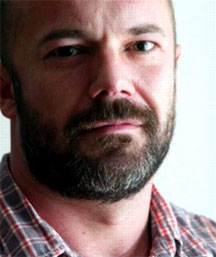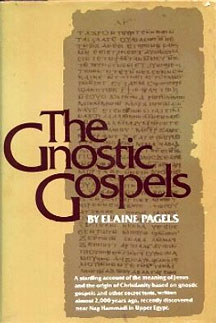| |
A Resource by Mark D. Roberts |
|
Andrew Sullivan, Hugh Hewitt,
and Retrofitted Christianity
by Rev. Dr. Mark D. Roberts
Copyright © 2006 by Mark D. Roberts
Note: You may download this resource at no cost, for personal use or for use in a Christian ministry, as long as you are not publishing it for sale. All I ask is that you give credit where credit is due. For all other uses, please contact me at mark@markdroberts.com . Thank you.
Andrew Sullivan, Hugh Hewitt, and Retrofitted Christianity 
Part 1 of the series: Andrew Sullivan, Hugh Hewitt, and Retrofitted Christianity 
Posted for Friday, October 27, 2006
| I'm taking a short break from my series on What is a Church? to comment on a recent radio interview that I found fascinating. |
On Wednesday afternoon as I was driving along in my car I flipped on the radio to the Hugh Hewitt Show. What I heard was perplexing. Hugh was attempting to interview someone whose voice I didn't recognize. Yet the interview was going oddly, to say the least, because it seemed as if the interviewee preferred to play the role of interviewer, a role Hugh wasn't keen on giving up. The topic of the conversation, or at least the topic Hugh was trying to address, was the religious faith of the interviewee, so my interest was especially piqued. Then I learned that Hugh's reticent guest was Andrew Sullivan, so my interest grew even more. (Click here for the transcript of this interview.)
Andrew Sullivan is someone whom I find fascinating. A skilled writer and creative thinker, Sullivan combines in one man several attributes that rarely share the same human body. He is a gay, Christian, Roman Catholic, conservative who voted for John Kerry. (He may be the only one of this species in existence today.) It's no surprise that such a combination leads to unusual perspectives, many of which can be found on Sullivan's blog, The Daily Dish.
But the focus of Hugh's interview – or attempted interview, at any rate – was not Andrew Sullivan's blog, but rather his new book, The Conservative Soul: How We Lost It, How to Get It Back. I have not yet read this book carefully, though I have skimmed it, enough to know that Sullivan has much to say about religion, especially his disdain for the Christian Right. |

|
| |
Andrew Sullivan |
I find Sullivan's thoughts about Christianity fascinating for several reasons. One is that he epitomizes something I'd call "Retrofitted Christianity." What do I mean by this? If you look up "retrofit" in the dictionary, one definition reads: "To provide with parts, devices, or equipment not in existence or available at the time of original manufacture." If you retrofit a classic car, for example, you might give it a new engine that wasn't available when the car was first built. So retrofitted Christianity is a version of classic faith that includes new parts that weren't there at first. Some people, like Andrew Sullivan, think this is a better or even more authentic version of the faith. Others, like me, for example, are concerned that the retrofitted version of Christianity exemplified by Sullivan lacks some essential parts, even though it gets some things right.
In this web series I want to examine the retrofitted Christianity espoused by Andrew Sullivan, especially as it was expressed in his interview with Hugh Hewitt. I reserve the right to refer to Sullivan's book as needed. I am making this examination, not only because I find Sullivan's ideas interesting, but also because he represents a substantial segment of American Christians, especially those who publish books that end up in the religion sections of secular bookstores.
Yet Sullivan is an enigma in many ways. Though his version of Christianity often looks anything but traditional, and though he was often evasive when Hugh asked direct, simple questions, Sullivan unabashedly affirmed two crucial doctrines of traditional Christian orthodoxy. In response to Hugh's question, "Do you believe Jesus Christ rose form the dead?" Sullivan responded "Yes." And when asked, "Do you think he [Jesus] was divine?" Sullivan said, "Yes, I do." Such apparently straightforward affirmations of classic Christian faith set Sullivan apart from many so-called liberal Christian writers. And they're part of what I find so fascinating about him.
Yet there are other things Sullivan affirms that depart from classic Christian faith. These I'll begin to examine in my next post in this series.
Andrew Sullivan and the "Gospels Truth" 
Part 2 of the series: Andrew Sullivan, Hugh Hewitt, and Retrofitted Christianity 
Posted for Monday, October 30, 2006
As I tuned in to the Hugh Hewitt radio program last Wednesday (October 25, 2006), I joined Hewitt in the middle of an interview with Andrew Sullivan, the acclaimed and controversial journalist, and author of a new book, The Conservative Soul. Since the topic was religion, something in which I am keenly interested, I listened attentively. Soon the subject moved to the topic of the gospels, something in which I am doubly keenly interested. I found the dialogue between Hewitt and Sullivan quite captivating, which isn't surprising given the intellectual powers of both men and the numerous differences between their views. What follows are excerpts from the interview upon which I want to comment in this post. You can find a transcript of the whole interview (90 minutes worth) on Hewitt's website.
HH: Andrew, last half hour, I wanted to get through the religion parts of the book in the first half hour, but I’ve still got a couple more questions. When you write about "the Gospels – all of them, including some that were rejected by the early Church" [p. 208] which rejected Gospels do you think ought to be part of the canon?
AS: I don’t. I just think they’re interesting, and should be looked at as any sensible [person] is . . . .
[Note: The transcript isn't quite right at this point, since it misses the word "person" which is audible on the recording. Here Sullivan interrupts himself to complain about the number of advertisements on Hugh's show. I've complained about this very thing to Hugh, though I understand that the ads pay for the show and aren't excessive given talk radio standards. This is something Sullivan appeared not to understand at first, believing that Hugh's show was some kind of Christian ministry that should be ad-free.]
HH: . . . Andrew, going back, though, which of the non-canonical gospels do you recommend to people?
AS: Well, I think what I would recommend is, to anybody, is to read, for example, Elaine Pagel’s work, and some of the amazing scholarship that’s happened in the last ten or twenty years, to see how Christianity, at its very core, was a very contentious and debated and quarrelsome organization. And people disagreed from the minute Jesus died and rose from the dead about what he meant, and they fought about it, and talked about it, and prayed about it, for two centuries and longer. And they still are, and we still are. And that’s not something to be frightened of. As Jefferson pointed out, inquiring into faith, thinking about your faith, doubting about your faith, is part of the process of believing. And the early Christians did it, we still do it, and there’s something about the certainty and intolerance of some contemporary Christian fundamentalists that I think that should be alien to the spirit of Jesus, and alien to the spirit of humility and faith. I’m trying to recover from the politicized Christians which you support so strongly.
HH: So there are no particular of the non-canonical gospels you want to offer up as a good one?
AS: No, because I frankly think some of them are gobbledygook, and some of them have insights, but I think there’s a reason that the four Gospels were selected by the Church as being the most reliable, even though of course, they contradict each other, and contradict themselves internally, so that they are also fallible, obviously fallible as human documents. But I think they are inspired by this astonishing moment of God made man, called Jesus. And I think at the same time, they’re just words. And the real experience of Jesus is beyond words . . . .
There is much to comment upon here, and I won't try to get it all into this one post. Let me begin with the non-canonical gospels.
Sullivan says that none of the non-canonical gospels should be included in the canon, a refreshing change from the Jesus Seminar types who seem to want to canonize the Gospel of Thomas, though, more accurately, they actually want to blow apart the whole notion of canon. Sullivan does not pursue this unhappy line of reasoning, to his credit.
When pressed again to recommend one of the non-canonical gospels, Sullivan says, "Well, I think what I would recommend is, to anybody, is to read, for example, Elaine Pagel's work, . . . ." Then, a few moments later, when Hewitt asks if Sullivan wants to recommend one non-canonical gospel, he responds, "No, because I frankly think some of them are gobbledygook, and some of them have insights . . . ."
| Let me say a word about Elaine Pagels, whom Sullivan recommends. Pagels, in addition to being a scholar who studies Gnosticism, has also written popular books on the subject, most notably The Gnostic Gospels. She, perhaps more than any other human being, besides Sir Leigh Teabing, has stirred up widespread interest in and even affection for Gnosticism and its ancient writings. (I have written on Pagels and her books elsewhere.) Thus I'm not surprised to find that Andrew Sullivan, a well-read intellectual who, like Pagels, earned his doctorate at at Harvard, has been influenced by Pagels and recommends her work. I also believe she has much to contribute to the conversation about Gnosticism. But it's essential for one to read her popular writings in light of her own personal agenda, which has to do with promoting a particular view of early Christianity that undermines orthodoxy and emphasizes pluralism and individual freedom in the choice of what to believe. This agenda fits almost perfectly with Andrew Sullivan's, as is clear from his interview and from his book. I'll get to this point later. At any rate, in Pagels Sullivan has a theological soulmate. |
|
|
The problem with reading Pagels (and others like her) without reading the non-canonical gospels themselves is that these gospels come out sounding much better when translated into the postmodern language of Pagels. One might think that these gospels actually advocated pluralism and personal freedom of choice in matters of religion, when in fact they were every bit as narrow and doctrinaire as orthodoxy, and much less egalitarian . I say this on the basis of my own close reading of many non-canonical gospels.
One of the doctrines of what I'm calling retrofitted Christianity claims that the non-canonical gospels have much to offer to us today. They are said to provide an ancient Christian basis for things like individualism, pluralism, and feminism. In my opinion, this doctrine requires more faith than most of what orthodox Christians believe. If you really go back and read the Gnostic gospels, you'll agree with Andrew Sullivan that "some of them are gobbledygook." You may also find that "some of them have insights," partly because they echo what is found in the canonical gospels. But you won't find much of what is attributed to them without projecting postmodern bias into the texts themselves.
In one of my previous blog posts I actually did what Sullivan refused to do on Hewitt's show by recommending several non-canonical gospels that I believe are worth reading. These include the gospels of Truth, Thomas, Philip, Egyptians, and Mary. In my opinion, actually reading these gospels, in addition to the postmodern commentary on them, will show how little they actually offer to contemporary believers (or non-believers, for that matter). These documents are fascinating for those of us interested in church history, but otherwise relatively unhelpful to people of faith.
I'll continue my examination of Sullivan's portrayal of the gospels and early Christian history tomorrow. Let me conclude today's post by quoting something I previously wrote on the Gnostic gospels: "Perhaps the quickest cure for a naïve admiration of Gnosticism is taking time to read actual Gnostic writings."
Andrew Sullivan and the "Gospels Truth," Section B 
Part 3 of the series: Andrew Sullivan, Hugh Hewitt, and Retrofitted Christianity 
Posted for Tuesday, October 31, 2006
Yesterday I began analyzing what Andrew Sullivan said about the gospels, biblical and otherwise, during his interview with Hugh Hewitt. (If you want to read the relevant excerpt from the interview, check out yesterday's post.) Today I want to focus on two of Sullivan's claims. One has to do with the nature of early Christianity; the other with the nature of the gospels and their relationship to Jesus.
The Contentious Core of Christianity
When queried by Hewitt about which non-canonical gospel he would recommend, Sullivan responded:
Well, I think what I would recommend is, to anybody, is to read, for example, Elaine Pagels' work, and some of the amazing scholarship that’s happened in the last ten or twenty years, to see how Christianity, at its very core, was a very contentious and debated and quarrelsome organization. And people disagreed from the minute Jesus died and rose from the dead about what he meant, and they fought about it, and talked about it, and prayed about it, for two centuries and longer. And they still are, and we still are
If you were to go to your local secular bookstore and pick up at random a book on early Christianity, chances are good you'd end up reading something similar to what Sullivan described. Scholars like Elaine Pagels and Bart Ehrman have popularized the view that early Christianity was, essentially, an extraordinarily diverse and, indeed, contentious movement. This idea is not particularly unusual or new, however. In my first year of graduate school at Harvard, I was assigned a book called Orthodoxy and Heresy in Earliest Christianity by Walter Bauer. This book, translated and published in 1971, was based on the second edition of Bauer's original, called in German Rechtgläubigkeit und Ketzerei im ältesten Christentum (which was first published in 1934). Bauer argued that the in the earliest stages of Christianity there was great diversity, with the labels of "orthodoxy" and "heresy" applied later by the orthodox church as a way to dismiss early theologies they disliked. Bauer's perspective was heartily advanced by my professor, Helmut Koester, who was Elaine Pagels' dissertation advisor (and mine as well).
The fact that early Christian thought was diverse is obvious from the New Testament itself. You can also see plenty of evidence of contentiousness, as in Paul's letters to Corinth or Galatia. But the notion that, at its core, early Christianity was "a very contentious and debated and quarrelsome organization" overstates the case. What is surely true is that earliest Christianity was united in its central confession that Jesus, by virtue of His death and resurrection, was Lord and Savior, and that faith in Him made all the difference in the world, both now and in the world to come. The second-century Gnostics came to reject this core of Christian faith. But the evidence does not suggest that this sort of thing was common among the earliest Christians.
Whether he knows it or not, Andrew Sullivan has been indoctrinated into another of the articles of faith of retrofitted Christianity. Scholars and others who desperately prefer pluralism and who seek to undermine Christian orthodoxy have painted a picture of early Christianity that suits their preferences. In this picture, the diversity and disagreement among early Christians is exaggerated, while the predominance of orthodoxy is minimized. Of course this nicely supports the theological leanings of those who want to see themselves as somehow Christian without endorsing orthodox theology. I'm not necessarily faulting Sullivan for accepting this point of view because he may not realize the extent to which what he has read in popular scholarship stretches the available evidence to fit a contemporary agenda.
Contractions in the Gospels
In his interview Sullivan said,
I think there’s a reason that the four Gospels were selected by the Church as being the most reliable, even though, of course, they contradict each other, and contradict themselves internally, so that they are also fallible, obviously fallible as human documents.
This is the sort of thing you hear all the time about the New Testament gospels if you're exposed to the kind of scholarship that flourishes on college campuses and in secular media. And it's also the sort of thing that continues to amaze me. For the life of me, I just don't understand how an intelligent, well-educated person like Andrew Sullivan, one who has no doubt actually read the New Testament gospels, can so glibly talk about their multiple contradictions and errors. A reader with any sort of subtlety, and surely Sullivan is such a reader, can see that there are variations among the biblical gospels, and that the gospel writers often tell similar stories in slightly different ways. But to label these differences as contradictions is an overly simplistic and an historically anachronistic move. It's the sort of thing one might expect from someone with a fundamentalist mindset, which is not an approach Sullivan supports.
I can't imagine what Sullivan is thinking about when he claims that the gospels "contradict themselves internally." I assume he means, for example, that the Gospel of Mark is self-contradictory. Where? How? When? I seem to have missed this. The notion that the gospels contradict each other could at least be based upon actual differences among the gospels. Luke, for example, tells the story of the visit of the shepherds to the manger of Jesus (not the tomb, as claimed by my earlier typo! Thanks to D. Sather for this correction.), while Matthew focuses on the magi. But these differences aren't contradictory. A contradiction would be, for example, Matthew's having Jesus born in Nazareth while Luke places His birth in Bethlehem. But this sort of thing just doesn't happen in the gospels (or, if, as some scholars allege, it does, it is very rare). What we do find is slight variations of wording, emphasis, and narrative ordering, as well as other kinds of differences that can be explained in light of the approach of Hellenistic biographers and historians. For the details of this argument, you'll have to wait until June 2007, when my new book, Can We Trust the Gospels? is released. In the meanwhile, you can check out an early version of my chapter "Are There Contradictions in the Gospels?" online.
Once again, I fear Sullivan has bought into a bit of retrofitted Christian dogma, which exaggerates the differences among the gospels for the sake of discounting them. Ironically, the kind of literalistic reading that allows some scholars to find multiple contradictions among the gospels is exactly the sort of thing Sullivan despises among fundamentalists. I am not the first to point out that fundamentalist Christians and liberal scholars who reject biblical authority both tend to read the Bible in the same, overly literalistic way.
The Gospels and Jesus |
|
| |
Talk about a retrofit! Somebody has turned his old fashioned radio into a speaker for his iPod! |
Though Sullivan believes the gospels are contradictory and fallible, he adds:
But I think they are inspired by this astonishing moment of God made man, called Jesus. And I think at the same time, they’re just words. And the real experience of Jesus is beyond words.
Here Sullivan is on track. The essential inspiration for the gospels was, indeed, "this astonishing moment of God made man, called Jesus." I would add, however, that orthodox Christians also believe that the gospel writers were inspired by the Holy Spirit, who mysteriously guided their writing without erasing the writers' human personalities. Thus, though the gospels are human words, they're not "just words." They are also words that reflect God's own creative hand. Yet, to be sure, "the real experience of Jesus is beyond words" (see, for example, 2 Corinthians 12:1-4).
In my next post I want to explore a bit further Sullivan's understanding of what it means to be a Christian.
Andrew Sullivan on Jesus, Section A 
Part 4 of the series: Andrew Sullivan, Hugh Hewitt, and Retrofitted Christianity 
Posted for Wednesday, November 1, 2006
Yesterday I finished my examination of Andrew Sullivan's comments on the New Testament gospels. As a guest on the Hugh Hewitt Show, Sullivan said, you may recall, that they "are inspired by this astonishing moment of God made man, called Jesus." On the surface, Sullivan appears to affirm the classic Christian doctrine of the Incarnation, that Jesus was God in the flesh.
Yet in his interview of Sullivan, Hewitt pressed for clarification:
You write on page 208, ". . . so Jesus was executed. And the life more in touch with divinity than any other life was ended abruptly, when it was still achingly young. . . ." So when you wrote that "in touch with divinity more than any other life," that suggests he wasn’t divine. Do you think he was divine?
Sullivan responded:
Yes, I do, and I say the mystery of the incarnation in the book, as you know . . . . I say the mystery of the incarnation is that God…that Jesus is not just God, but he was God made man.
So, it seems, Sullivan believes Jesus was "more in touch with divinity than any other life" because he also believes that Jesus was God in human flesh.
Yet I can understand Hewitt's uncertainty because of something Sullivan wrote a little earlier on page 208 of The Conservative Soul, something not quoted in the interview:
And this, it seems to me, is the true mystery of the incarnation, the notion that in Jesus, God became man. I should say that I believe this in the only way I can: that one man represents, for all time, God's decision to be with us. The reason I call myself a Christian is not because I manage to subscribe, at any given moment, to all the truths that the hierarchy of my church insists I believe in, let alone because I am a good person or a "good Catholic." I call myself a Christian because I believe that, in a way I cannot fully understand, the force behind everything decided to prove itself benign by becoming us, and being with us.
I must confess to being a bit confused about what Sullivan really believes about Jesus. He says, in good orthodox fashion, that in Jesus God became man. Then he immediately qualifies this by saying that he believes it in the only way he can, "that one man represents . . . God's decision to be with us." This seems to be a denial of the actual Incarnation, replacing the fact with a symbol. But then Sullivan adds that "the force behind everything decided to prove itself benign by becoming us, and being with us." According to this last sentence God became us, seemingly in fact, and was also with us.
Two of Sullivan's statements are the sort of thing you often hear from representatives of retrofitted Christianity:
[The incarnation means] that one man represents . . . God's decision to be with us.
[Jesus's life was] the life more in touch with divinity than any other life.
These statements, taken out of context, do not affirm the classic Christian view of the Incarnation. They simply acknowledge that the human Jesus was a very spiritual person. They reinterpret the doctrine of the Incarnation in a way that affirms "God with us" while denying the actual "God-made-human-ness" of Jesus. The Incarnation becomes a symbol of something, but wasn't itself an ontological reality. You'll find this sort of view proclaimed in liberal Christian pulpits and books all over the place. |
|
| |
Retrofitting happens all the time in California. Our freeways are being systematically retrofitted to withstand earthquakes.
|
I'd say that this is Sullivan's view, except for the fact that at other points he talks as if God actually became human in Jesus. The real Incarnation, from this perspective, is also "God's decision to be with us" and means that Jesus was "more in touch with divinity than any other person" because, well, He was God in the flesh. It seems to me that Sullivan actually affirms the Incarnation in an ontological sense, though he uses the sort of language popularized in retrofitted Christianity.
Why am I harping on this point? Because the fact of the Incarnation is one of the most central and precious of all Christian beliefs. Jesus isn't merely a symbol of God's somehow being with us in a general way. Jesus is, in fact, Immanuel, God with us. And because He is God with us, He can reveal God to us in a unique way, and can redeem us from our sins.
I find myself in greatest disagreement with Sullivan when he describes the Incarnation in this way: "[T]he force behind everything decided to prove itself benign by becoming us, and being with us." Okay, I can accept "the force behind everything" as a theologically-vague but rhetorically-engaging way of talking about God. But just about the last thing I would say about the Incarnation is that it reflects God's decision to "prove Himself benign." In fact, I'd argue that the Incarnation is one of the least benign moves God has ever made. It was astoundingly active, risky, and mind-bogglingly gracious. A benign God would sit back and let us find our own way to heaven. The God of Jesus is so "un-benign" that He was willing to become human for our sake, ultimately even enduring death on a cross.
The notion of a benign God seems to inform Sullivan's view of what it means that God was with us in Jesus and what it means for us to be Christians. I'll examine this a bit further in my next post. For now, I want to close with a passage from a letter of the Apostle Paul. I realize that Sullivan isn't too fond of Paul. But he might do well to consider Paul's description of the Incarnation, and then reconsider whether or not to use the word "benign" when talking about it.
Let the same mind be in you that was in Christ Jesus,
who, though he was in the form of God,
did not regard equality with God
as something to be exploited,
but emptied himself,
taking the form of a slave,
being born in human likeness.
And being found in human form,
he humbled himself
and became obedient to the point of death—
even death on a cross.
Therefore God also highly exalted him
and gave him the name
that is above every name,
so that at the name of Jesus
every knee should bend,
in heaven and on earth and under the earth,
and every tongue should confess
that Jesus Christ is Lord,
to the glory of God the Father.
(Philippians 2:5-11)
Andrew Sullivan on Jesus, Section B 
Part 5 of the series: Andrew Sullivan, Hugh Hewitt, and Retrofitted Christianity 
Posted for Thursday, November 2, 2006
Yesterday I began to examine Andrew Sullivan's views of Jesus. Today I want to dig a big deeper into this subject. Unlike my previous posts in this series, now I'm relying solely on Sullivan's book, rather than his interview with Hugh Hewitt.
One of the most moving parts of The Conservative Soul is Sullivan's description of a life-changing experience he once had:
At one point in my life, when I was diagnosed with what was then a fatal disease, HIV, when one of my closest friends was suddenly admitted to the hospital with AIDS, and when my mother was also hospitalized with depression, I felt something inside me simply beg for God's help. I wanted to know why all these things had befallen me and those I loved all at once. I wanted an answer. I wanted something to hold on to, something to anchor me, to return to me the spiritual and physical equilibrium I had suddenly lost. I found myself drawn to the Gospels, and all I can say is that the old story I had long loved spoke to me more powerfully than ever.
The story is of Jesus's surprise visit with two friends, Martha and Mary. When Jesus arrives, Martha immediately does what she should: she prepares food. The meal is in the future and her job is to get there. Mary, in contrast, simply "sat down at the Lord's feet and listened to him speaking." Martha gets progressively more irritation with Mary's indolence and finally bursts out: "Lord, do you not care that my sister is leaving me to do the serving all by myself? Please tell her to help me." Jesus answers: "Martha, Martha, you worry and fret about so many things, and yet few are needed, indeed only one. It is Mary who has chosen the better part; it is not to be taken away from her."
An endorsement of idleness? Of irresponsibility? Of selfishness? In a way, Mary is guilty of all these moral failings. By the book, she's wrong. But in that very moment, she is not merely right. She is, in Jesus's formulation, doing the only thing that is right. And she is doing nothing. She is merely being with Jesus. She has let go.
And this, it seems to me, is the true mystery of the incarnation, the notion that in Jesus, God became man. . . . (pp. 207-208)
In a season of deep despair and anxiety, Sullivan experienced God's presence through the Gospels and through Jesus Himself. I know many Christians who have had similar experiences, including me. One of mine came when a close friend was admitted to the hospital with potentially terminal cancer while, at the same time, my own father was near death from liver cancer. In such desperate times when we cry out to God, God reaches out to us and graciously makes Himself known to us.
Most of the Christians I know would have no problem with the idea that God touched Andrew Sullivan in the midst of his anguish. Yet I know some people who would be bothered by what I just said about Sullivan. "After all," they would reason, "Sullivan got HIV through sinful behavior, as did his friend with AIDS, in all likelihood. Suffering had befallen him because of his and his friend's poor choices (bracketing for a moment his mother's depression). How can it be that God would comfort Sullivan with His presence in this case? People who choose a homosexual lifestyle rightly suffer, and are cut off from God."
I do believe that the Bible teaches us that homosexual behavior is sinful. And I believe that human sin–all sin, including my own–separates us from God. But I also believe that God's grace is far greater than our sin. If this were not the case, then none of us would ever have experiences of God, because none of us is righteous enough to merit God's presence. So, once again I would assert, contra Sullivan, that God is not benign in relationship to us, but active in graciously making Himself known. Thus I am not surprised or scandalized by the idea that a person like Andrew Sullivan would have a profound encounter with God in response to his cry for mercy. I am, in fact, regularly surprised by the wondrous fact that God, knowing me as He does and therefore fully aware of my own sin, still offers me the comfort of His holy presence.
Folks who discount the possibility of gays receiving God's grace would do well to remember a parable of Jesus:
Two men went up to the temple to pray, one a Pharisee and the other a tax collector. The Pharisee, standing by himself, was praying thus, "God, I thank you that I am not like other people: thieves, rogues, adulterers, or even like this tax collector. I fast twice a week; I give a tenth of all my income." But the tax collector, standing far off, would not even look up to heaven, but was beating his breast and saying, "God, be merciful to me, a sinner!" I tell you, this man went down to his home justified rather than the other; for all who exalt themselves will be humbled, but all who humble themselves will be exalted. (Luke 18:10-14)
Although I believe that Andrew Sullivan had a profound encounter with God, and that the story of Mary, Martha, and Jesus sparked this encounter, I'm not altogether happy with the moral Sullivan draws from this story. He is right, I think, to suppose that, from the perspective of Mary's culture, she'd be viewed as idle, irresponsible, and selfish. In fact, many Jews in the time of Jesus did not think women should be taught at all. So Mary's cultural offense is even greater than Sullivan realizes.
Yet he misses the main point of the story, I fear. In Sullivan's telling, Mary "is not merely right. She is, in Jesus's formulation, doing the only thing that is right. And she is doing nothing. She is merely being with Jesus." Stop! This is not quite what we learn from the story of Mary and Martha. Mary is not, in fact, doing nothing. She is not only being with Jesus. Rather, she is sitting at His feet and listening to what He is saying, according to Luke 10:39. "Sitting at the feet" of a teacher was a way of describing the posture of discipleship. Luke's description portrays Mary as a disciple of Jesus, one who, in particular, was being taught by Him. This, I would suggest, if far more than doing nothing. It is, rather, doing one of the most important things one can ever do in life. |
|
| |
"Christ in the House of Martha and Mary" by Jacopo Tintoretto, a 16th century Venetian painter. |
That Andrew Sullivan misses the point of this story isn't altogether surprising because he seems very reticent to recognize the extent to which Jesus was a teacher, and therefore the extent to which a Christian is someone who receives the teaching of Jesus while "sitting at his feet," so to speak. In my next post I'll pursue this line of thought a bit further.
Andrew Sullivan on God as Benign 
Part 6 of the series: Andrew Sullivan, Hugh Hewitt, and Retrofitted Christianity 
Posted for Monday, November 6, 2006
Two posts ago I expressed concern over Andrew Sullivan's characterization of God as "benign." Then, in my last post, I suggested that he missed the main point in the story of Mary, Martha, and Jesus, by seeing Mary as "doing nothing" rather than "sitting at the feet of Jesus and listening to what he was saying" (Luke 10:39). These criticisms are related, as I'll show in a moment, and they have also stirred up some worthy challenges.
Commenting in my Bulletin Board, Lilolvintner says,
I appreciate and value your discussion of Sullivan's work and the interview, and generally agree with what you have said, however, I too wondered if you were making too much of Sullivan's choice of the word "benign".
This is certainly possible, though since I don't know Sullivan personally, all I have to go on in my effort to understand his theology is what he has written or said. (He used "benign" to characterize the meaning of the Incarnation in The Conservative Soul, p. 208). I do think, though, that Sullivan's view of Christianity does emphasize God as "benign."
Andrew P., in an extensive and thoughtful comment, adds:
I'd chalk it up at least in part to a classic difference in emphasis between the mystical/devotional (often Catholic) and textual/scholastic traditions (typically Protestant, especially evangelical) strains or traditions of Christianity.
This may also be true. One can see Sullivan's Catholic roots especially in his focus on the sacramental dimensions of faith (see, for example, The Conservative Soul, p. 209, 220-221). I expect his background does lead him to see Christian faith through different lenses than my own.
But I still think Sullivan's conception of God leaves behind the extent to which God, in both Catholic and Protestant theology, is much more active than the word "benign" would suggest. In particular, Sullivan frequently de-emphasizes or denies the extent to which God, in Scripture and in tradition, reveals truth to be believed and commandments to be obeyed. For example, Sullivan says of what he calls conservative (but not fundamentalist) faith: |
|
| |
Vincenzo Campi, "Christ in the House of Mary and Martha," 16th century. What I love about this painting is that you can barely see Jesus and Mary in the background, near Martha's right shoulder. The emphasis is on the lavish portrayal of food. Painting from Web Gallery of Art.
|
It is not about doctrine as such, although doctrines may indeed be inferred from it. It is about a man who was God and lived among us, and died for us, and gave us his own body and blood to eat and drink, and who commanded us to ignore everything except the only thing necessary: the command to love one another, as a sign and reflection of God's love for us. (p. 209)
There is much that is good here. But if one takes seriously the Jesus of the gospels (even and especially the non-canonical ones!), then it's just not correct to say that He taught us to "ignore everything" except the command to love. Indeed, Jesus made love the top priority. But He had much more to say than just this. In fact, the focus of Jesus's actual message was not the command to love, but rather the proclamation of the kingdom of God. (See, for example, Mark 1:14-15 and my series, What Was the Message of Jesus?)
In his interview with Hugh Hewitt, Andrew Sullivan said, "Jesus didn't have a theology." Even granting the imprecision of language that comes during a live interview, I find this statement troubling. To be sure, Jesus didn't write a systematic theology, at least as far as we know. And He didn't tend to give anything like theological lectures. But Jesus did proclaim the kingdom of God, both directly and parabolically, both in word and in deed. He both had a theology and passed on that theology to His followers. He expected them to accept it and to turn their lives around in light of it. While Mary was sitting at Jesus's feet, she wasn't doing nothing, but rather she was listening to Jesus. No doubt some of what she heard we would call theology.
Let me see if I can boil down my concerns to a concise paragraph:
Andrew Sullivan emphasizes the experience of being with God and imitating the loving praxis of Jesus. Surely these are both central to the Christian life. But Sullivan tends to ignore or to deny the way in which relationship with God is also an experience of "sitting at the feet of Jesus," if you will. Jesus does indeed teach us to put love at the top of our priorities, but He does not command us to ignore everything else. Rather, when we spend time with Jesus, He gives us truths to believe and actions to do. In fact, He said that the wise person is one who "hears and acts" on His words (Matthew 7:24). Therefore, authentic Christianity isn't just a matter of being with Jesus and imitating Him. It's also a matter of believing Him and obeying Him.
Sullivan associates these activities with the kind of fundamentalistic faith he passionately rejects. (See Chapter 2 of his book, "The Fundamentalist Psyche," pp. 23-72.) And, while there are elements of his critique of fundamentalism that I would endorse, it seems to me like he throws out the baby with the bathwater. One can surely believe Christian revelation, from Jesus, from Scripture, or from the Church, without becoming haughty and arrogant. One can seek to obey God's commandments without becoming legalistic and judgmental. One can know about Jesus as He's revealed in Scripture without losing a personal relationship with Him. In fact, I'd propose that the truth about Jesus as found in Scripture will lead us into a deeper relationship with Him. I wrote a whole book on this very topic.
I do agree with Sullivan that we Christians often receive God's revelation haughtily rather than humbly. We can take the truths of God and turn them into bats for bashing our theological opponents. The commandments of God can become, not life-giving guidance, but guilt-inducing legalism. Christians like me, who emphasize the truth and morality of Christianity can easily become the hypocrites Jesus criticizes as those who see the speck in our neighbor's eye but not the log in our own eye (Matthew 7:3-5). But in using Jesus's words to point out such hypocrisy, I'm doing the very thing Sullivan minimizes, by "sitting at the feet of Jesus" in order to hear and do His words.
Before I finish up this series, I want to say something about Sullivan's view of conscience, and also his understanding of the relationship between faith and politics. More next time . . . .
Home
|

















